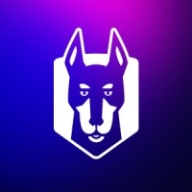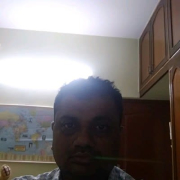

Coverity Static and Snyk compete in the software security space, providing static code analysis and open source vulnerability management, respectively. Coverity Static appears to have an advantage due to its low false positive rate and deep code analysis capabilities, although Snyk offers ease of use and broader language support.
Features:Coverity Static is distinguished by its low false positive rate, comprehensive code analysis capability, and strong integration with various CI/CD tools. This makes it suitable for deep and accurate code scanning across diverse environments. Snyk stands out for its broad support for numerous programming languages, simple user interface, and extensive developer-friendly integrations, which help organizations efficiently manage vulnerabilities in open-source dependencies.
Room for Improvement:Coverity Static could benefit from enhancing its user interface and reporting features while also improving integration with popular BI tools for better data visualization. Simplifying the configuration for custom validation routines and providing a more graphical representation of data flow are also suggested. Snyk should consider improving its alert granularity and reporting functionalities, especially in regards to better notification filtering systems and extended language support.
Ease of Deployment and Customer Service:Coverity Static is primarily deployed in on-premises and hybrid cloud environments, offering extensive support during setup, though its responsiveness could improve. Snyk is typically used in public cloud settings and is recognized for easy access and quicker support responses. Both solutions provide reliable customer assistance with varying responses and issue resolution satisfaction.
Pricing and ROI:Coverity Static is often seen as expensive due to pricing based on the number of users or lines of code, which might be costly for larger teams. Despite this, it is noted for providing a good ROI through early defect detection. Snyk, while not inexpensive, is valued for its comprehensive coverage and developer-centric pricing model, offering competitive costs for enterprises. Its functionality and support for multiple languages make its price worthwhile for many users.
| Product | Market Share (%) |
|---|---|
| Coverity Static | 6.0% |
| Snyk | 5.2% |
| Other | 88.8% |


| Company Size | Count |
|---|---|
| Small Business | 8 |
| Midsize Enterprise | 6 |
| Large Enterprise | 31 |
| Company Size | Count |
|---|---|
| Small Business | 20 |
| Midsize Enterprise | 9 |
| Large Enterprise | 21 |
Coverity gives you the speed, ease of use, accuracy, industry standards compliance, and scalability that you need to develop high-quality, secure applications. Coverity identifies critical software quality defects and security vulnerabilities in code as it’s written, early in the development process, when it’s least costly and easiest to fix. With the Code Sight integrated development environment (IDE) plugin, developers get accurate analysis in seconds in their IDE as they code. Precise actionable remediation advice and context-specific eLearning help your developers understand how to fix their prioritized issues quickly, without having to become security experts.
Coverity seamlessly integrates automated security testing into your CI/CD pipelines and supports your existing development tools and workflows. Choose where and how to do your development: on-premises or in the cloud with the Polaris Software Integrity Platform (SaaS), a highly scalable, cloud-based application security platform. Coverity supports more than 20 languages and 200 frameworks and templates.
Snyk excels in integrating security within the development lifecycle, providing teams with an AI Trust Platform that combines speed with security efficiency, ensuring robust AI application development.
Snyk empowers developers with AI-ready engines offering broad coverage, accuracy, and speed essential for modern development. With AI-powered visibility and security, Snyk allows proactive threat prevention and swift threat remediation. The platform supports shifts toward LLM engineering and AI code analysis, enhancing security and development productivity. Snyk collaborates with GenAI coding assistants for improved productivity and AI application threat management. Platform extensibility supports evolving standards with API access and native integrations, ensuring comprehensive and seamless security embedding in development tools.
What are Snyk's standout features?Industries leverage Snyk for security in CI/CD pipelines by automating checks for dependency vulnerabilities and managing open-source licenses. Its Docker and Kubernetes scanning capabilities enhance container security, supporting a proactive security approach. Integrations with platforms like GitHub and Azure DevOps optimize implementation across diverse software environments.
We monitor all Static Application Security Testing (SAST) reviews to prevent fraudulent reviews and keep review quality high. We do not post reviews by company employees or direct competitors. We validate each review for authenticity via cross-reference with LinkedIn, and personal follow-up with the reviewer when necessary.